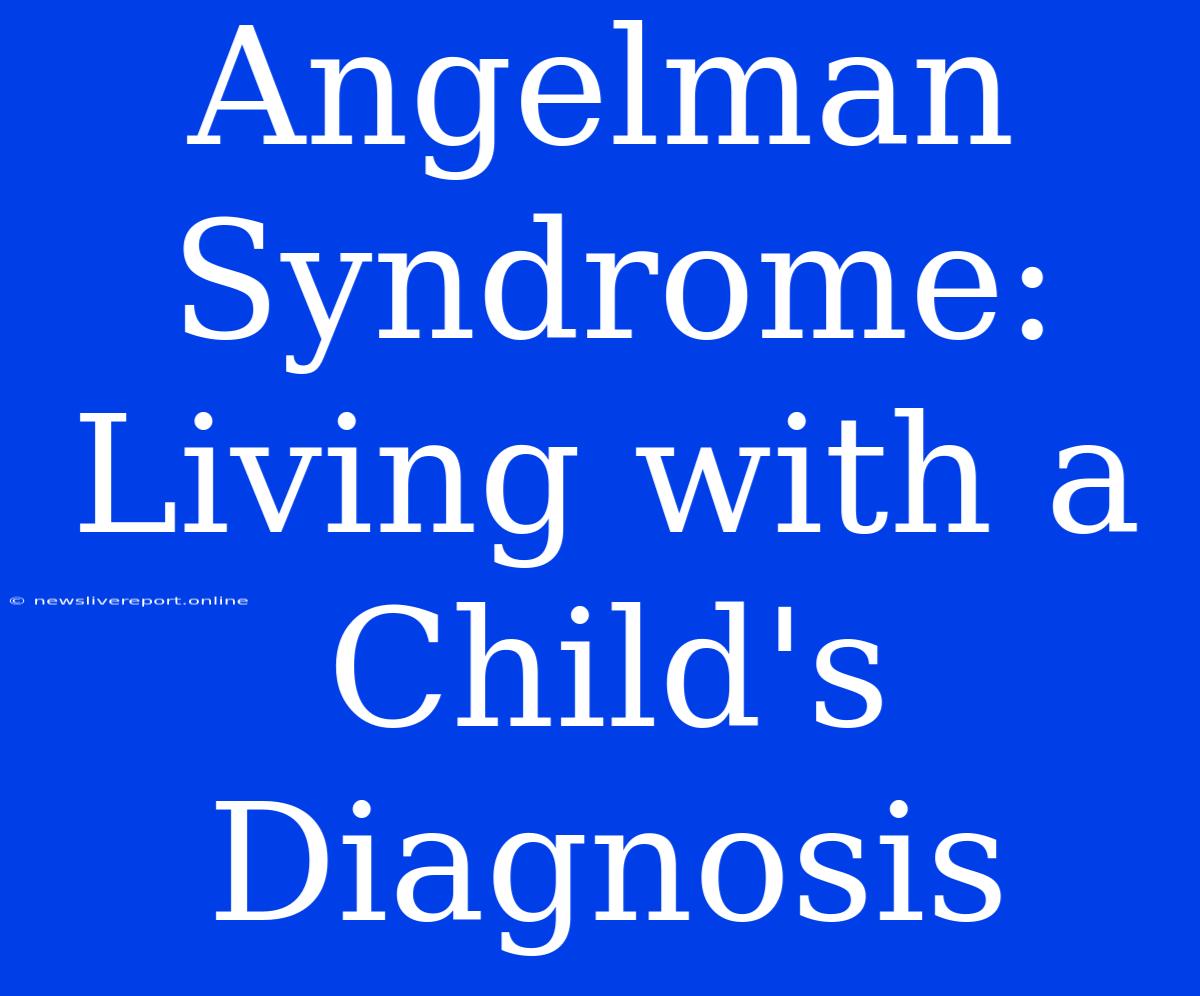Angelman Syndrome: Living with a Child's Diagnosis
Angelman Syndrome (AS) is a rare neuro-genetic disorder that affects approximately 1 in 12,000 to 20,000 births. It's characterized by a range of developmental delays, intellectual disabilities, and behavioral challenges. This syndrome can significantly impact a child's life and bring a whirlwind of emotions for parents. This article explores the challenges and joys of living with a child diagnosed with Angelman Syndrome.
Understanding the Diagnosis:
Receiving a diagnosis of Angelman Syndrome can be a deeply unsettling experience. Parents often struggle to process the implications of this complex condition. Early intervention and access to the right resources are crucial to supporting a child with AS.
Key Characteristics of Angelman Syndrome:
- Developmental Delays: Children with AS often experience delayed milestones, such as walking, talking, and sitting up.
- Intellectual Disability: The severity of intellectual disability can vary, but most individuals with AS require lifelong support.
- Characteristic Behaviors: Smiling, laughter, and hand-flapping are common features, along with a fascination with water and spinning objects.
- Communication Challenges: Speech development is often delayed, and individuals with AS may have difficulty with verbal communication.
- Seizures: A significant number of individuals with AS experience seizures.
Challenges and Strategies:
1. Behavioral Management: Understanding and managing behaviors like hyperactivity, impulsivity, and sleep disturbances can be challenging. Behavioral therapy, medication, and structured routines can help create a positive environment for children with AS.
2. Communication and Socialization: Supporting communication development through various therapies and assistive technology is crucial. Creating opportunities for socialization and interaction with peers can be beneficial.
3. Medical Management: Regular checkups with specialists are essential for monitoring growth, managing seizures, and addressing any health concerns.
4. Emotional Support: Navigating the emotional rollercoaster of raising a child with AS can be demanding. Support groups, online communities, and professional counseling can provide valuable resources.
The Joys of Living with Angelman Syndrome:
Despite the challenges, living with a child with AS brings unique joys:
- Unconditional Love: The love between a child and their parent transcends any differences.
- Unbridled Joy: The contagious laughter and infectious joy of individuals with AS bring a unique spark to life.
- Resilience and Strength: Witnessing a child with AS navigate their world with resilience and determination inspires awe and admiration.
- Strong Community: Connecting with other families who understand the journey offers a sense of belonging and support.
A Journey of Hope:
Living with a child with Angelman Syndrome is a journey filled with both challenges and joys. With the right support, access to resources, and a deep commitment to understanding the unique needs of their child, parents can create a fulfilling life for their child with AS. It is important to remember that every individual with AS is unique, and the challenges and joys of this journey will vary.
Where to Find Help:
- Angelman Syndrome Foundation: Provides information, resources, and support to families affected by AS.
- National Angelman Syndrome Foundation (NASF): Offers comprehensive information, research, and advocacy for individuals with AS.
- Angelman Syndrome UK: Offers support, guidance, and resources to families in the UK.
Remember: You are not alone in this journey. Reaching out for support and connecting with other families is an important step towards creating a brighter future for your child with AS.

